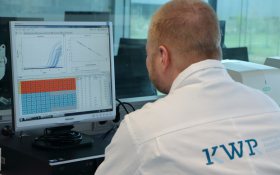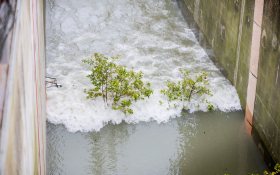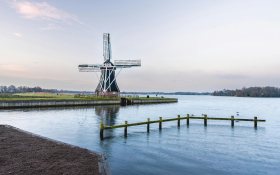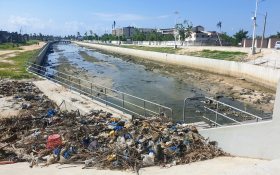Top ranking for Dutch water supply and treatment in global 2014 EPI
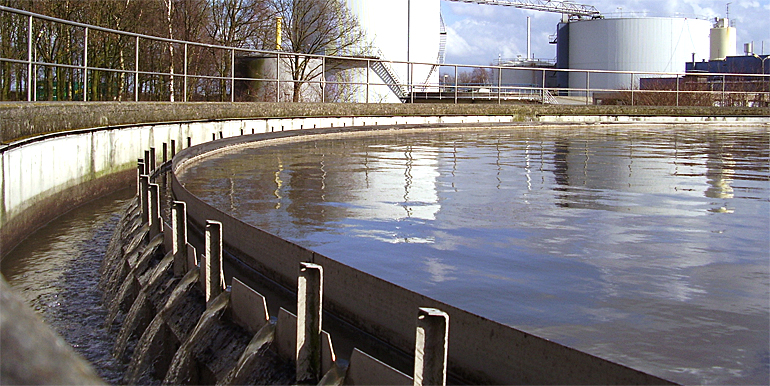
All Dutch households have access to clean drinking water and sanitation. Almost all waste water is treated. This gives the Netherlands a top ranking for the water themes of the Environmental Performance Index 2014.
For Water & sanitation the Netherlands ranks on the first place, together with 21 other countries that also have a nationwide water supply for all households. When it comes down to treatment of waste water, the Netherlands ranks second after Singapore.
The Environmental Performance Index comprises the performance of 178 countries on 20 environmental issues. The index is produced biennially by researchers at Yale and Columbia universities.
This year's edition was published at the World Economic Forum in Davos, Switzerland, on 25 January.
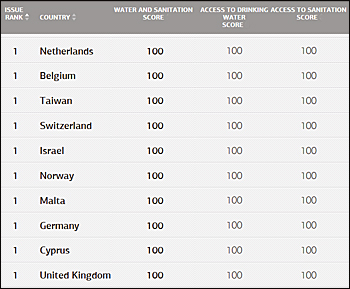 Global ranking 2014 EPI-indicator water & sanitation
Global ranking 2014 EPI-indicator water & sanitation (= proportion of total population with access to an improved drinking water source and sanitation).
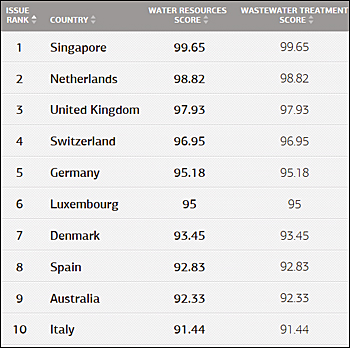
Global ranking 2014 EPI-indicator water resources
(= proportion of collected wastewater that is treated)
Overall environmental performance
Switzerland comes in at the very top of the 2014 EPI on all environmental themes. Luxembourg, Australia, Singapore, and Czech Republic round out the top five positions of the Index, which ranks countries on high-priority environmental concerns including air quality, water management, and climate change.
The Netherlands ranks 11th on the overall enviromental themes, scoring very high on health and water, but less on air quality, agriculture and fisheries.
New indicator for water treatment
The EPI has two indicators for water. The theme Water & sanitation tracks percentage of population with access to improved drinking water sources and improved sanitation, including pit latrines and toilets.
This year Water resources has been added as a second indicator for the first time. It shows how well countries treat wastewater from households and industrial sources before releasing it back into the environment.
As there was no single database that was comprehensive enough to develop a global indicator, the EPI research team made its own dataset.
Ideally the indicator showcases more advanced levels of treatment, but most countries lack the necessary data. The indicator considers 'at least primary treatment', because reported values of overall treatment performance entail going through primary treatment first.
The researchers hope to be able to add layers of specificity in the future as more refined data becomes available.
Afghanistan: big jump in access to drinking water
The global EPI-scorecard provides insight as to collective policy impacts on major environmental issues. Improvements have been made in many of the categories of the Environmental Health objective, including a steady increase of people that have gained access to improved drinking water and proper sanitation.
Some countries made a remarkable progress though. In Afghanistan alone, the percentage of households with access to clean drinking water went from 5 percent in 1991 to 61 percent in 2011.
Ethiopia has also been able to connect more of its villages to safe drinking water through investment from the national government and international aid.
See the website for more information on the 2014 Environmental Performance Index (EPI).
More information
Vewin - Association of Dutch Water Companies
The Hague, the Netherlands
+31 70 394 08 60
www.vewin.nl
(companies responsible fror drinking water supply)
Unie van Waterschappen - Association of Regional Water Authorities
The Hague, the Netherlands
+31 70 351 97 51
www.uvw.nl
(water boards responsible for waste water treatment)
Launch of the Environmental Performance Index 2014 - Press Conference in Davos, Switzerland on 25 January 2014.
